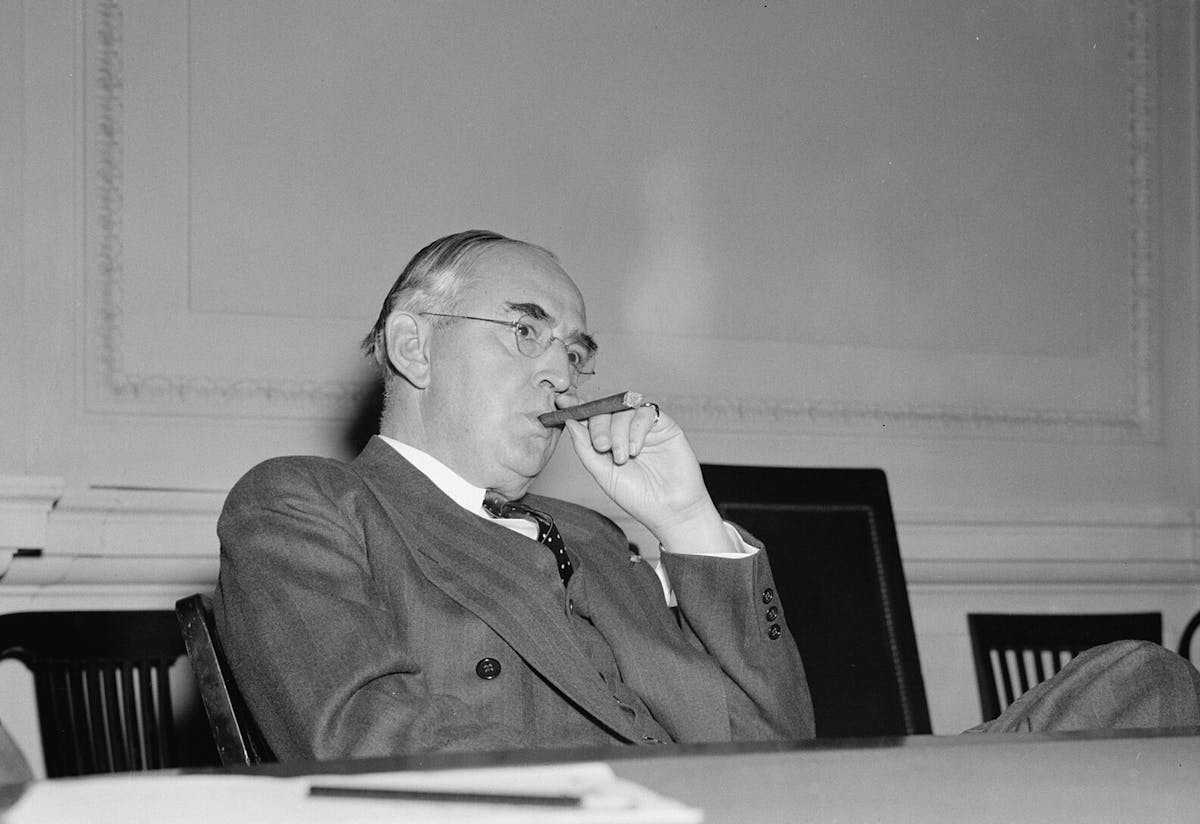America at the Water’s Edge
The effort to quash the Ukraine aid bill reflects a resurgence of an old temptation, found among both parties, to lighten America’s burden of global leadership.

One can imagine the glee at the Kremlin, Beijing, and in Hamas’s tunnels now that Speaker Johnson, bowing to an emerging Appeasement Caucus in Congress, vows to bottle up legislation to aid America’s allies — Ukraine, Free China, and Israel — in their struggles for freedom. Mr. Johnson’s stance, with the blessing of President Trump, leaves it up to a bipartisan coalition to force a vote on the aid by way of a “discharge petition” whose chances are iffy.
The effort to quash the aid bill reflects a resurgence of an old temptation found among members of both parties — seen in George Washington’s warning not to “entangle our peace and prosperity in the toils of European ambition” — to lighten the burden of global leadership. It marks a retreat from the dawn of the Cold War when isolationism’s failures had just been put in sharp relief by the charred ruins of Europe and Japan and the deaths of millions.
Senator Vandenberg, the Michigan Republican who left the august post of newspaper editor to enter politics, then helped steer America toward a leading role on the world stage. An ex-isolationist, he explained in 1945 that he once “believed in our own self-reliance.” Yet the “gory science of mass murder,” he saw, made modern war “an all-consuming juggernaut.” He said he no longer thought “that any nation hereafter can immunize itself by its own exclusive action.”
Amid post-war debate over how closely America would enmesh itself in organizations like the United Nations or the North Atlantic Treaty, Vandenberg chided isolationists by noting “partisan politics, for most of us, stopped at the water’s edge.” The Republican party even adopted the mantra in its platform in the 1948 election. In a 1949 editorial, the Sun echoed Vandenberg’s sentiment, calling the creation of NATO “the only sound answer to a serious threat.”
Yet the Sun, which has historically had a clear-eyed skepticism of global bodies and unwarranted foreign obligations, noted that its “satisfaction” with the creation of NATO “is tempered by regret that the realities of the world situation make such action necessary.” Those “realities” centered on the menace from Moscow. “If it had not been for Russian obstruction,” the Sun explained, the UN “would have been in a position to do all” NATO was tasked with.
The Sun in 1949 hailed NATO as a tool so that “any nation will think twice before it starts picking on one of its neighbors.” Seventy-five years later, that spirit of fair play animates the effort to help the doughty Ukrainians as they fend off Russia’s invasion. After two years of war, though, ammunition is running low, fatigue has set in, and calls are growing to appease Moscow by slicing off Ukraine’s eastern quarter and handing it to Russia.
“America’s best interest,” Senator Vance has said, is “to accept Ukraine is going to have to cede some territory to the Russians.” Senator Lee of Utah rationalizes denying funds by saying that “our job first and foremost is to protect this country.” The refutation for such appraisals comes from Vandenberg, who said that America defended its allies abroad because “we are the final target, though other independent peoples are in nearer jeopardy.”
We’re not unmindful of the concerns of Messrs. Trump, Vance, Lee, et al. There’s been poor leadership of the war by President Biden. And Mr. Trump has spooked the Europeans enough that they’re talking about raising their defense outlays. Yet this won’t deter Russia the way a united NATO would. And it would certainly be undermined by cutting off military support to Kyiv in the ways Mr. Biden endorsed in Vietnam, Iraq, and Afghanistan.
Which brings us back to Capitol Hill. Efforts to round up votes for the aid bill in the House face headwinds from the followers of Mr. Trump, who would delay the matter so he can settle it, and far left Democrats, who side with Hamas against Israel. In both cases, these factions appear to be putting partisanship ahead of global security and America’s national interest. Such considerations, as Vandenberg warned decades ago, are best set aside at the shoreline.

